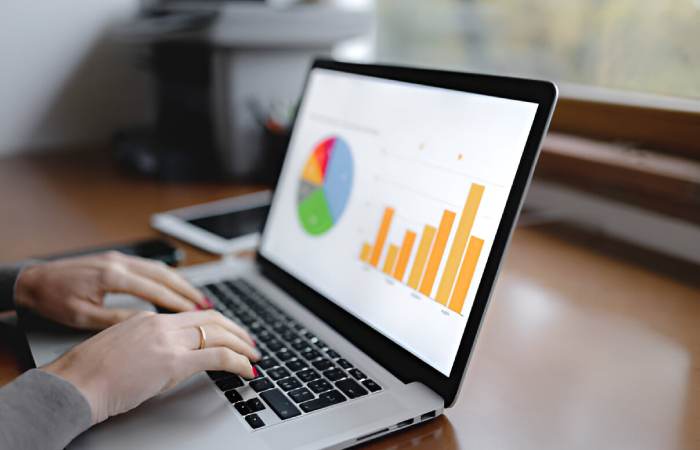Rapid changes in audience preferences, channel relevance, and emerging technologies characterise today’s marketing. Organisations are turning to advanced solutions to develop and execute marketing strategies to keep up. Among the most effective tools are AI-powered strategy builders, which use artificial intelligence to automate key stages of planning, execution, and optimisation. This approach is a significant departure from outdated manual processes. With AI-powered systems, teams achieve faster results, greater accuracy, and measurable improvements. In this analysis, you will learn how AI-powered strategy and marketing plan automation platforms are transforming campaign development, streamlining execution, and driving business growth across all industries.
AI Strategy Generators: Transforming the Marketing Landscape

AI-powered strategy generators use machine learning algorithms, big data analytics, and automation engines to create powerful digital marketing strategies in minutes. These platforms are changing how marketers plan campaigns, moving from time-consuming research and coordination to instant, data-driven decision making. Instead of relying solely on experience or guesswork, marketing leaders can now access customised strategies based on deep AI-powered competitive analysis, historical data, and industry benchmarks. Companies that use AI-powered strategy generators are better prepared to grow, mitigate risk, and respond to market fluctuations.
The Benefits of Automated Marketing Roadmaps
Automated marketing roadmaps remove the friction associated with traditional campaign planning. They break down complex initiatives into understandable. actionable steps that teams can continuously monitor, measure, and optimise. This shift reduces the time between ideation and launch, allowing companies to act quickly and align with corporate goals. Organisations using automated marketing roadmaps can more accurately predict results and allocate resources across channels more efficiently. AI-powered strategy solutions deliver specific results without ongoing human oversight, driving greater efficiency and reliability.
Precision in KPI-Focused AI Strategy
Successful marketing requires setting goals and tracking progress over time. AI-powered strategy generation systems integrate key performance indicators (KPIs) into each step of the automated marketing roadmap, ensuring that activities are continually aligned with growth goals, revenue targets, and customer engagement metrics. This transparency facilitates rapid assessment of campaign performance and real-time adjustments. Whether the goal is to increase leads, brand awareness, or improve conversion rates, AI-powered, KPI-driven strategies ensure that all efforts directly contribute to measurable business results. Periodic adjustments maximise return on investment (ROI) by reallocating investments based on data rather than intuition.
Leveraging Marketing Plan Automation for Streamlined Execution
Marketing plan automation uses technology to automatically create, plan, and manage campaign activities, from initial planning to reporting. Companies that leverage this capability delegate repetitive manual tasks to AI-powered systems, allowing team members to focus on strategy, creativity, and relationship building. By integrating with AI-powered competitive intelligence and digital marketing strategy modules. Marketing plan automation streamlines workflows, reduces human error, and increases campaign agility. Organisations shorten campaign cycles and seize opportunities faster, reducing the risk of wasted spend.
Connecting Automation to Real-Time Results
Modern marketing automation suites offer a centralised dashboard to manage content distribution, audience segmentation, budget allocation, and campaign monitoring. These suites include automated marketing roadmaps, built-in tracking, and adaptive workflows that respond to real-time campaign data. Automated alerts and predictive reporting allow teams to identify ineffective activities early and adjust strategies before losses mount. When combined with AI-powered marketing automation licensing and consulting options. Organisations create a comprehensive system that can easily scale to meet business needs.
Continuous Optimisation Using ROI-Driven AI Tools
ROI-driven AI tools use advanced analytics to evaluate every touchpoint, channel, and tactic to determine their financial impact. Weekly, monthly, and quarterly performance reports show what’s working, what’s not, and where strategic adjustments can make the most significant difference. AI-powered marketing strategy tools integrate directly with content marketing platforms and services to bridge the gap between idea generation and measurable results. Modular licensing and integration options help organisations tailor their systems to departmental or regulatory needs.
Strategic Integration: Merging People and AI for Success
While AI-powered automation and strategy platforms improve productivity, the human element remains key. Subject matter experts serve as overseers, guiding AI to the specifics of the business, tailoring campaigns to sensitive markets, and providing creative direction. Strategic workshops and marketing audit services allow teams to step back and objectively evaluate results against benchmarks. These measures ensure that marketing plan automation complements human intelligence, rather than replacing it. By maintaining this balance, organisations drive innovation, maintain high standards, and strengthen brand image.
Marketing Workshops: Empowering Teams to Use AI Tools
Marketing workshops are critical to building your team’s confidence in automated tools. Training sessions teach employees AI-powered marketing strategies, explain advanced features of marketing automation solutions, and show them how to apply insights gained from AI-powered competitive analysis. Workshops typically cover practical scenarios, job functions, and success metrics to facilitate smooth implementation and continuous improvement. When combined with licensing support and consulting, workshops speed up the onboarding of new employees and help seasoned professionals stay on top of the latest trends.
Collaboration and Solution Customisation
Collaboration between marketing professionals and AI experts enables digital marketing strategies to be tailored to specific business goals, industry regulations, and operational constraints. Licensing options allow teams to scale automation as needs grow or change, while AI marketing automation consulting services offer deep expertise to address specific challenges. Strategic collaboration facilitates knowledge transfer, ongoing professional development, and improved campaign performance across departments and geographies.
The Power of AI Competitor Analysis in Campaign Planning
Competitive intelligence powered by artificial intelligence (AI) is one of the most valuable features of strategy solutions. Using big data, engine learning, and natural language processing, these platforms evaluate direct and indirect competitors, identifying strengths, weaknesses, and emerging threats. The results are used to automate marketing plans, allowing you to allocate resources, refine messages, and prioritise channels based on the data. Companies can monitor competitors’ pricing patterns, audience engagement tactics, and ad spend in real time, making timely adjustments to stay ahead in crowded markets.
Harnessing Data for Data-Driven Marketing Decisions
Leveraging data strengthens digital marketing strategy and facilitates tactical adjustments at every stage of the marketing automation plan. AI-powered analytics integrate data from internal CRM systems, web traffic, social media monitoring, and external sources. With reliable data, marketing audit processes become more informed and accurate. Teams structure content marketing strategy and campaign messaging based on facts, not assumptions, resulting in increased engagement and improved conversion rates. AI tools based on ROI assessment act as curators and assistants, helping marketers implement profitable initiatives that meet identified business needs.
Building Resilient Marketing Strategies through Automation
Agility in the face of uncertainty now defines organisational resilience. Marketing automation technologies provide the framework to respond to changing trends, algorithms, and regulations without needing large-scale manual reboots. Marketing execution services and AI-powered strategy systems enable in-house teams, partners, and agencies to execute campaigns at scale, even with limited resources or rapidly changing priorities. Automated marketing roadmaps reduce operational bottlenecks, maintain focus on business goals, and enable marketers to target growth proactively.
Action-driven campaign calendars and resource management
Great campaign results depend on accurate planning and efficient resource allocation. Marketing plan automation solutions automatically generate campaign calendars that map all necessary activities by week or month. Step-by-step plans include budget guidance, audience segmentation, and KPI benchmarks. This approach eliminates ambiguity, promotes accountability, and accelerates results. Licensing agreements and consulting support keep these processes current as new channels, regulations, and opportunities emerge.
Scaling Up: Licensing and Consultancy for Next-Level Marketing
As organisations scale, so do their needs for a sophisticated infrastructure for AI-powered marketing strategies. Licensing agreements allow companies to expand their automation capabilities across new geographies, verticals, and partner ecosystems without losing control or quality. AI marketing automation consulting services ensure integrations tailored to business needs, regulations, and cultures. This dual approach provides the flexibility to adapt marketing strategies at both the micro and macro levels. Organisations build teams that can innovate, adapt, and achieve consistent results when combined with ongoing training and marketing workshops.
Implementing Robust Marketing Audit Functions
Regular marketing audits ensure that tactical actions are aligned with the digital marketing strategy. AI-powered marketing audit tools offer real-time dashboards, benchmarking reports, and predictive analytics for fast, reliable analysis. These audits identify cost overruns, inefficient distribution channels, and emerging competitive threats. By integrating audit results into the AI-powered strategy builder workflow, teams create a feedback loop that continuously improves automated marketing roadmaps and performance metrics. This thorough monitoring helps organisations make informed decisions and optimise every dollar spent.
Continuous Improvement and the AI Content Marketing Strategy Advantage
The pace of change in content marketing requires frequent experimentation, measurement, and adaptation. AI-powered content marketing strategy tools track keyword performance, audience behaviour, and engagement across all touchpoints. Automated workflows and campaign sequencing ensure messaging is relevant, timely, and accurate at every stage of the buyer’s journey. These systems drive continuous improvement and strengthen ROI-based decision-making when combined with real-time KPI tracking and performance dashboards.
Future Trends: AI Strategy Generators and Beyond
Organisations can expect even deeper integration of competitive intelligence, marketing plan automation, and AI-powered automated marketing roadmaps into day-to-day campaign management. Advances in usual language processing, computer vision, and predictive analytics will further personalise digital marketing strategies and content creation. AI-powered platforms will remain to lower barriers to entry for small businesses while helping large companies manage global, multi-brand campaigns. Marketers must develop technical savvy and strategic vision to succeed, ensuring AI tools support the entire marketing lifecycle—from planning to continuous optimisation to maximise ROI.

